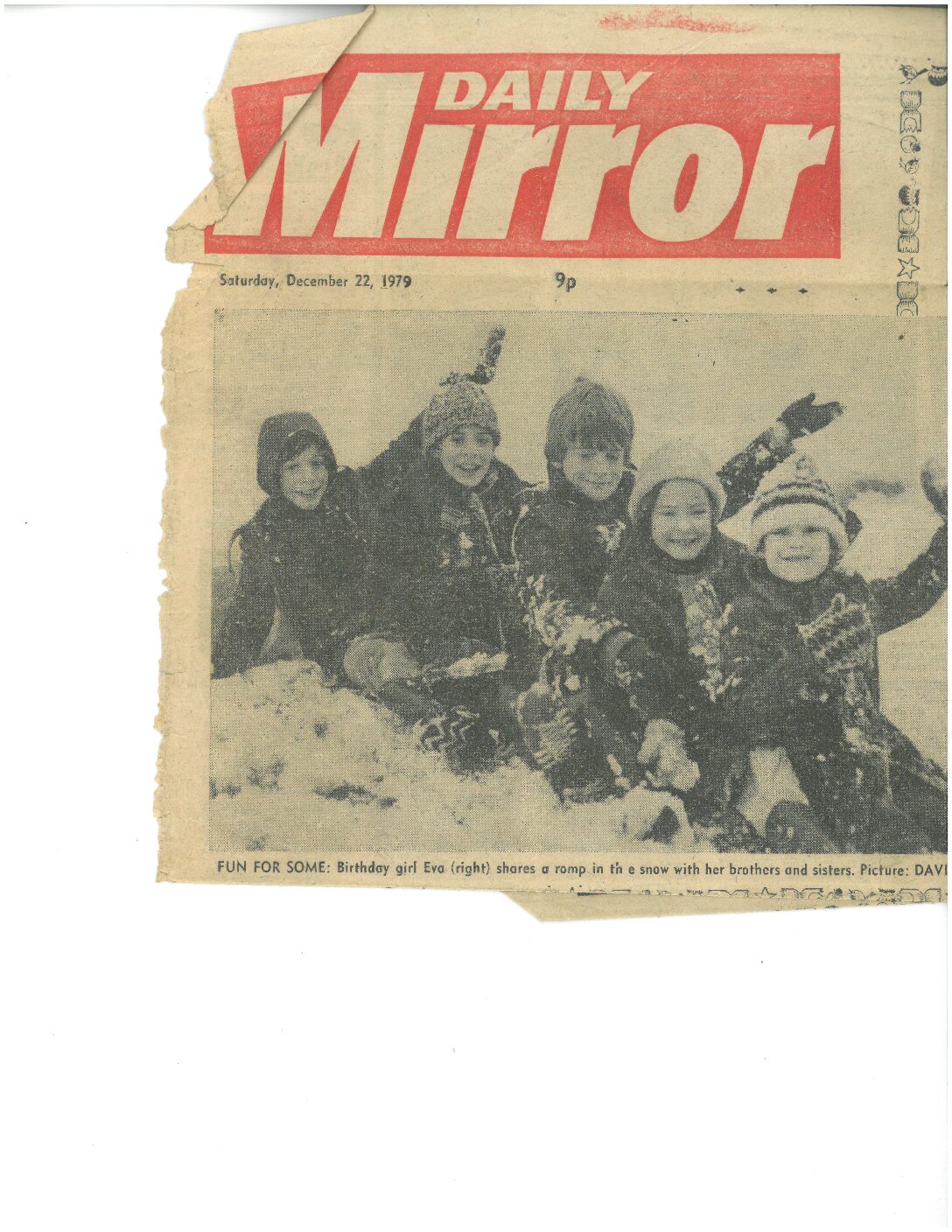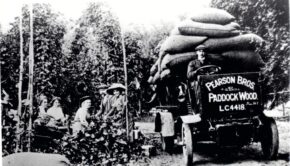Memories of Paddock Wood
We lived on a local farm and I first went hop picking when I was 5 years old. After school finished for the summer holidays I went out onto the farm with my mother, brother & sister to help with whatever jobs had to be done.
First there were the cherries to pick, pears and some early apples. Then came the hops and preparations had to be made ready for the extra hop pickers to arrive. The local hop pickers usually walked to one of the farms near to their home. Each farm had a row or several rows of huts called commons where the pickers were accommodated. We used to watch the farm workers sweep out the huts removing cobwebs and dust from the previous year and give them a coat of whitewash or lime distemper.
Paddock Wood was a village in those days and was surrounded by Hop Farms. The main one was Whitbread at Beltring. Gilberts was over the railway to the north of the town centre. Others south of the railway were Hall’s farm, at Putlands and opposite Henry Wright. The Burtons were at Badsell Manor along Badsell Road. Other farmers were Overys, Marchants and beyond the Elm tree pub, Mr Gorst, Mr May, Mr Simmonds and Mr Thompsett.
The area became very busy during the hop picking period and local shops had to prepare for increased demand of bread, milk, meat and groceries. The pubs would also need more ale resulting in many fights. Some of the shops like the grocers put up wire netting along their counters to protect their stock and staff.
Firms like Burgess & Richardson collected fruit and vegetables from the London markets as well as from local farms to sell to the pickers.
When writing about hop picking we must remember the work of the gypsies and travellers. They arrived with their horses, caravans and tents and set up their own encampments on the farms. These people spent their lives travelling up and down the countryside, working as fruit and hop pickers in order to get a living.
In the early days of the hop picking the pickers would meet the farmer at the edge of the hop garden and he would ask them to pay their footing. Payment would be by a coin or hop token.
As a result of imported hops and the decline in beer drinking, almost all of the hop gardens have disappeared.






Comments